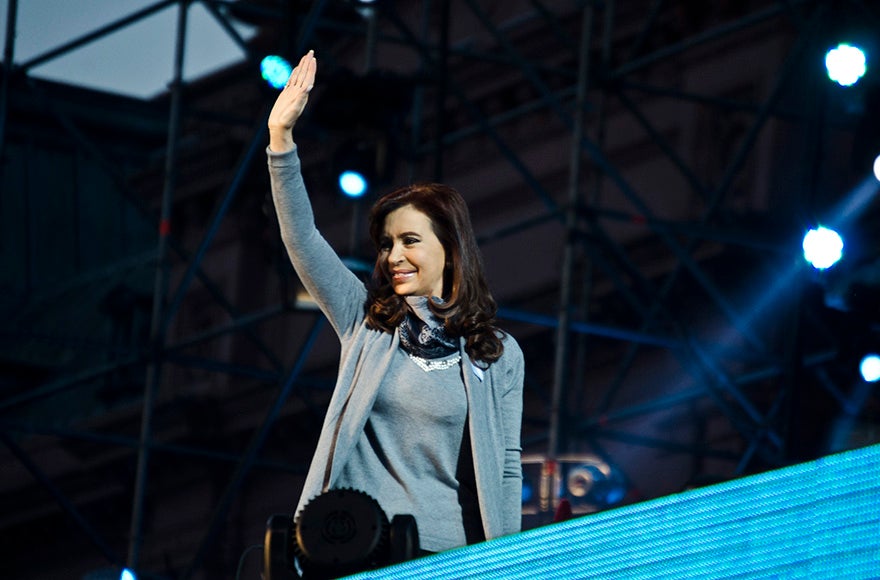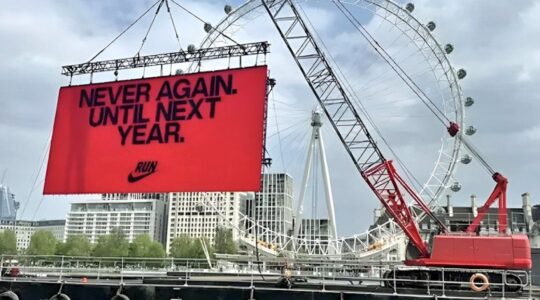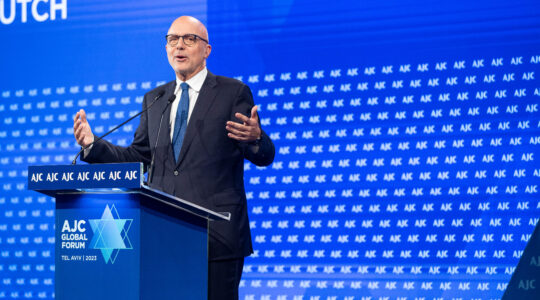BUENOS AIRES (JTA) — The political fallout from the 1994 terrorist attack on Argentina’s AMIA Jewish center has driven a wedge between AMIA and the Jewish political umbrella DAIA.
On Thursday, AMIA’s president Agustín Zbar asked DAIA to remove itself from a lawsuit charging former President Cristina Fernández de Kirchner with treason over a pact signed with Iran in 2013. That agreement called for a joint investigation of the deadly bombing, which claimed 85 lives.
Critics of the pact called it a cover-up of Iran’s role in the attack. The government of Kirchner’s successor, Mauricio Macri, canceled the agreement in Dec. 2015, during his first week in office.
In its letter to DAIA, the AMIA leader suggested the Jewish community should remain neutral in the political and legal dispute that has caused a deep divide, known as “la grieta,” within Argentine society.
La grieta, wrote Zbar, is “a division that does not represent us.”
Kirchner is leading the main opposition to the Macri government ahead of presidential elections slated for October.
DAIA answered on Friday in a statement saying that it does not want to abandon its role in the trial but will submit AMIA’s request for the consideration of all its affiliated institutions, including AMIA. “The DAIA does not know the reasons why the AMIA, one of its more than 120 member organizations, has made this issue public,” the statement said.
Mainstream media in Argentina have reported widely on the tension between the Jewish community institutions. On Sunday, Feb. 3, local media reported that Zbar had apologized for his letter to AMIA and requested an indefinite leave of absence. He explained that he had not meant to imply that Iran and its proxy, the terrorist group Hezbollah, were not responsible for the bombing. He only meant to suggest that the case was best prosecuted by Argentina’s state institutions, not in a civil lawsuit to which the Jewish groups are parties, he said.
Zbar said he meant to protect Jewish institutions “from a national political dispute.”
No trial date has been set in the case that is investigating whether the pact was meant to whitewash the Iranian role in the 1994 AMIA bombing.
Iran has denied any involvement. Besides the former president, other former government officials also face charges involving the cover-up and abuse of power.
JTA has documented Jewish history in real-time for over a century. Keep our journalism strong by joining us in supporting independent, award-winning reporting.






